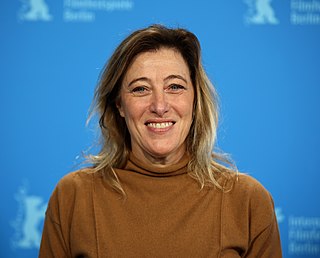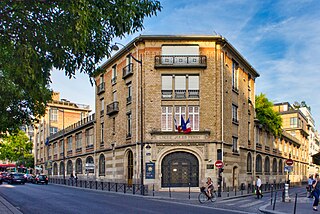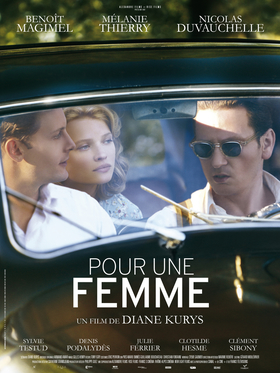
Delphine Claire Beltiane Seyrig was a Lebanese-born French actress and film director. She came to prominence in Alain Resnais's 1961 film Last Year at Marienbad, and later acted in films by Chantal Akerman, Luis Buñuel, Marguerite Duras, Ulrike Ottinger, Francois Truffaut, and Fred Zinneman. She directed three films, including the documentary Sois belle et tais-toi (1981).

A stinger is a duo cocktail made by adding crème de menthe to brandy. The cocktail's origins can be traced to the United States in the 1890s, and the beverage remained widely popular in America until the 1970s. It was seen as a drink of the upper class, and has had a somewhat wide cultural impact.

Pierre Palmade is a French actor, comedian, stage director and playwright.

Valeria Carla Federica Bruni Tedeschi, also written Bruni-Tedeschi, is an Italian and French actress, screenwriter and film director. Her 2013 film, A Castle in Italy, was nominated for the Palme d'Or at the 2013 Cannes Film Festival.

Benoît Magimel is a French actor. He was 14 when he appeared in his first film, and has starred in a variety of roles in French cinema. At age 16, Magimel left school to pursue acting as a career. In 2001, he won the Best Actor award at the Cannes Film Festival for his role in Michael Haneke's The Piano Teacher. He also starred in Claude Chabrol's La Demoiselle d'honneur.

Claire's Knee is a 1970 French romantic drama film written and directed by Éric Rohmer. It follows a soon-to-be-married man and his conflicted relationship with two teenage girls. The film stars Jean-Claude Brialy, Aurora Cornu, Béatrice Romand and Laurence de Monaghan. It is the fifth film in the series of the Six Moral Tales (1963–1972).

Same Old Song is a 1997 French comedy-drama film. It was directed by Alain Resnais, and written by Agnès Jaoui and Jean-Pierre Bacri. Jaoui and Bacri also starred in the film with Sabine Azéma, Lambert Wilson, André Dussollier and Pierre Arditi.
Diane Kurys is a French director, producer, filmmaker and actress. Several of her films as director are semi-autobiographical.

Water Lilies is a 2007 French drama film and the debut as a screenwriter and director of Céline Sciamma. It won the Louis Delluc Prize for Best First Film at the 2007 Cannes Film Festival.

Yves Simon (born 3 May 1944 in Choiseul, Haute-Marne) is a French singer and writer. Simon has published over 30 books and released about twenty albums.

Jean-Claude Floch, known as Floc'h is a French illustrator, comics artist, and writer. He is known for his use of the style known as ligne claire. His older brother Jean-Louis Floch was also a cartoonist and illustrator.
Jacques Rispal was a French film actor. He appeared in 100 films between 1952 and 1986.

Noémie Lvovsky is a French film director, screenwriter, and actress.

The Lycée Jules-Ferry is a public secondary and higher education school located in the 9th arrondissement of Paris. It is famous especially since it was used in Diane Kurys's film, Peppermint Soda.
Thérèse Quentin was a French actress. She was married to the actor and stage director Marcel Cuvelier (1924–2015), with whom she had a daughter, actress Marie Cuvelier.

For a Woman is a 2013 French drama film directed by Diane Kurys.

Muriel Robin is a French actress and comedian. She won an International Emmy Award for Best Actress in 2007 and received a nomination for a César Award in 2001 and six nominations for a Molière Award.
Cocktail Molotov is a 1980 French drama film written and directed by Diane Kurys. It is her second feature after Peppermint Soda. A female coming of age story set during the spring and summer of 1968, the film is not a sequel but can be considered a companion piece to its predecessor. It has been called a female take on the male-dominated road movie genre.
C'est la vie is a semi-autobiographical 1990 French drama written and directed by Diane Kurys. Like Peppermint Soda, Cocktail Molotov, and Entre Nous the plot revisits the theme of divorce and its effects. Set in the French beach resort of La Baule-les-Pins in the summer of 1958, it is mainly narrated in voice-over from the thirteen-year-old Frédérique's diary.

A diabolo is a non-alcoholic mixed drink available in most restaurants and bars in France. It consists of a common lemon soda mixed with syrup. Popular flavours include mint, strawberry, lemon or grenadine.















